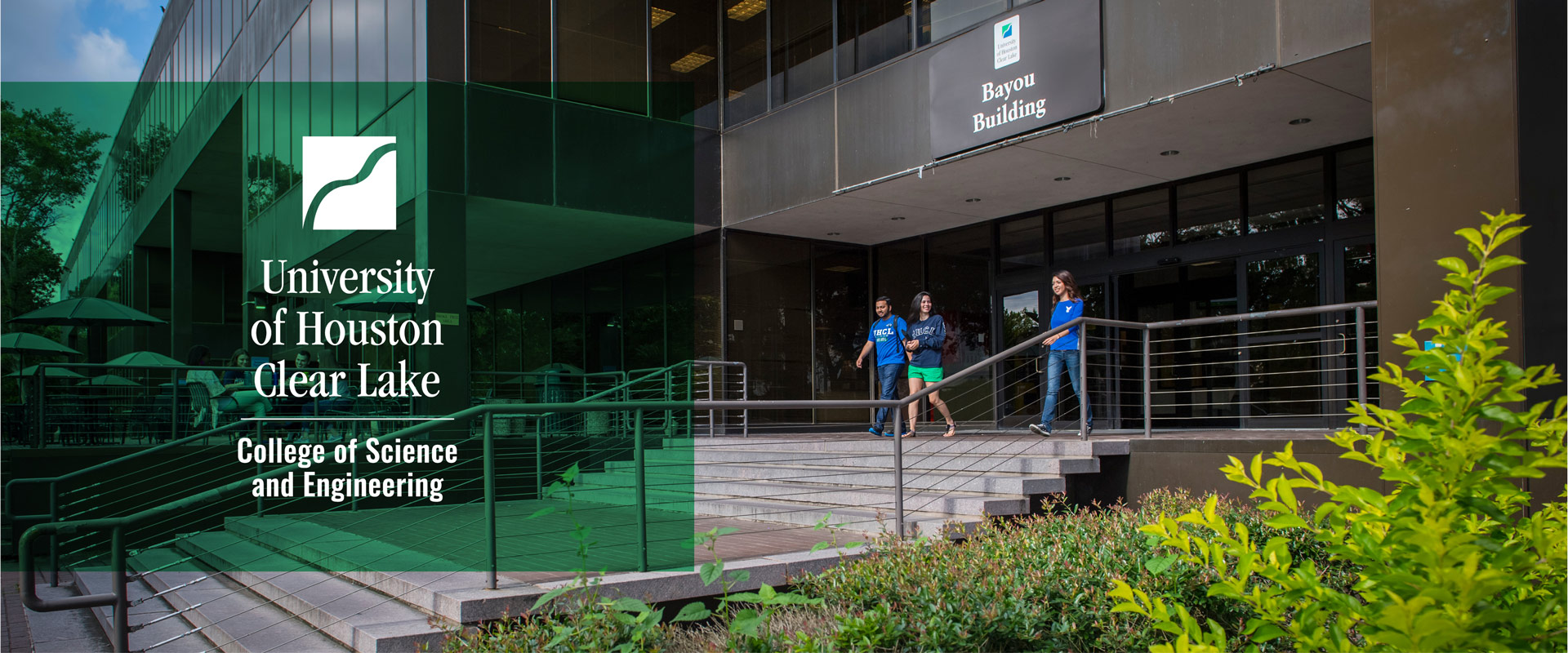- Future Students
- How to Apply
- Visit UHCL
- Admitted Students
- Tuition, Costs and Aid
- Degrees and Programs
- Contact Admissions
- Current Students
- Class Schedule
- Academic Calendar
- Advising
- Events
- Library
- Academic Resources and Support
- Student Services and Resources
- Alumni
- Lifetime Membership
- Alumni Events
- Update Your information
- Awards and Recognitions
- Give to UHCL
Sustainability physicist Lisa Dyson coming to UHCL lecture series
April 11, 2019 | Jim Townsend

Physicist Lisa Dyson will bring her vision of a sustainable future to University of Houston-Clear Lake’s public Physics Lecture Series on April 22 as she explains how her company created a process that utilizes natural, single-cell organisms to convert carbon dioxide into edible proteins, oils and other bio-based products.
Dyson is founder and CEO of Kiverdi, a California company whose mission is to develop innovations beyond traditional agriculture to help feed and power the world. Her lecture is titled “NASA-Inspired Solutions to Climate Change (and Feeding 10B by 2050).”
That was the theme of a talk she presented at a TED conference in 2016, on how an idea developed by NASA in the 1960s could be the key to reinventing how we grow food and for creating a replenishable energy supply.
In considering the problem of resupplying food sources on long space voyages, she said NASA scientists came up with creating a carbon cycle that would sustain life aboard a spacecraft using hydrogen from water and microbes called hydrogenotrophs. “What they came up with was actually quite interesting,” Dyson said in her TED presentation.
“Astronauts would breathe out carbon dioxide, that carbon dioxide would then be captured by the microbes and converted into a nutritious, carbon-rich crop,” she said. “The astronauts would then eat that carbon-rich crop and exhale the carbon out in the form of carbon dioxide, which would then be captured by the microbes, to create a nutritious crop, which then would be exhaled in the form of carbon dioxide by the astronauts. So in this way, a closed-loop carbon cycle is created.”
The idea was mothballed because of changes in NASA’s ambitions. But in researching it, Dyson was inspired to reignite the research and create a company whose mission is to create a sustainable and stable food and energy supply.
“We discovered that these hydrogenotrophs (are) a powerful class of microbes that had been largely overlooked and understudied, and that they could make some really valuable products,” she said during the 11-minute talk streamed worldwide. “Using these types of microbes actually could help us do something even greater if we take it to the next level. We believe that this type of technology can actually help us create a type of agriculture that’s sustainable, that will allow us to scale to meet the demands of tomorrow.
“Why might we need a sustainable agriculture? It is estimated that the population will reach about 10 billion by 2050, and we’re projecting that we will need to increase food production by 70 percent. In addition, we will need many more resources and raw materials to make consumer goods and industrial goods. So how will we scale to meet that demand?”
TED is short for technology, entertainment and design. The conferences, held annually since 1990, includes talks on scientific, cultural, political and academic topics and draws speakers and attendees from around the world. Originally held in Silicon Valley, the venue moved to Vancouver, B.C., Canada in 2014.
Dyson, whose visit to UHCL is sponsored by the American Physical Society, holds a doctorate in physics from MIT and has conducted technical research at MIT, Stanford, University of California Berkeley, Princeton, University of London, UC San Francisco and the Lawrence Berkeley Labs.
The UH-Clear Lake lecture series is 7 p.m. each Monday through April 29 in room 1203 of the STEM and Classroom Building, 2700 Bay Area Blvd., Houston. The lectures are free. If pursuing continuing-education credits, each lecture is $15; any three lectures is $40; the entire series is $99. To register or for more information, go to Physics Lecture Series.
Find out more about UHCL’s Physics program, by visiting www.uhcl.edu/science-engineering/departments/physical-applied-sciences/physics/.






